Etohicare-Th 4Mg Tablet 10'S
MRP ₹219
(Inclusive of all Taxes)
₹32.9 Cashback (15%)
Provide Delivery Location
Online payment accepted
 Prescription drug
Prescription drugWhats That
Composition :
Manufacturer/Marketer :
Consume Type :
Expires on or after :
Return Policy :
About Etohicare-Th 4Mg Tablet
Etohicare-Th 4Mg Tablet belongs to a group of medicines called analgesics used to treat osteoarthritis, rheumatoid arthritis, pain, and muscle spasms. Osteoarthritis is a degenerative joint disease in which the two ends of the joints come together due to the breakdown of a protective covering (cartilage). Due to the absence of this protective covering, the joints rub against each other, leading to pain and stiffness. Rheumatoid arthritis is an auto-immune disease (the body's immune system attacks its tissue), leading to joint pain and damage.
Etohicare-Th 4Mg Tablet is a combination of two drugs, namely: Etodolac (NSAID) and Thiocolchicoside (Muscle relaxant). Etodolac blocks the effect of a chemical messenger known as cyclo-oxygenase (COX) enzyme that makes other chemical prostaglandins. By blocking the effect of COX enzymes, lesser prostaglandins are produced. This helps reduce mild to moderate pain and inflammation at the injured or damaged site. Thiocolchicoside works on the centres of the spinal cord and brain. This helps relieve muscle stiffness and improves muscle movements, thereby helps relieve pain due to muscle spasms.
You are advised to take Etohicare-Th 4Mg Tablet for as long as your doctor has prescribed it for you, depending on your medical condition. In some cases, Etohicare-Th 4Mg Tablet may cause common side effects such as nausea, vomiting, heartburn, stomach pain, and indigestion. Most of these side effects do not require medical attention and will resolve gradually over time. However, you are advised to talk to your doctor if you experience these side-effects persistently.
Consult your doctor if you are pregnant or breastfeeding. Etohicare-Th 4Mg Tablet may cause drowsiness and dizziness, so drive with caution. Etohicare-Th 4Mg Tablet is not recommended for children as safety and efficacy have not been established. Avoid consuming alcohol along with Etohicare-Th 4Mg Tablet as it could lead to increased dizziness; it might also increase the risk of stomach bleeding. Keep your doctor informed about your health condition and medicines to rule out any side effects/interactions.
Uses of Etohicare-Th 4Mg Tablet
Directions for Use
Key Benefits
Etohicare-Th 4Mg Tablet is a combination of two drugs: Etodolac (Non-Steroidal Anti-Inflammatory Drugs) and Thiocolchicoside (Muscle relaxant). Etohicare-Th 4Mg Tablet is used to treat osteoarthritis, rheumatoid arthritis, pain, and muscle spasms. Etodolac blocks the effect of a chemical messenger known as cyclo-oxygenase (COX) enzyme that makes another chemical, prostaglandins, which are produced at injury sites and cause pain and swelling. By blocking the effect of COX enzymes, lesser prostaglandins are produced. This helps reduce mild to moderate pain and inflammation at the injured or damaged site. Thiocolchicoside works on the centres of the spinal cord and brain. This helps relieve muscle stiffness and improves muscle movements, thereby helping relieve pain due to muscle spasms.
Storage
Drug Warnings
Do not take Etohicare-Th 4Mg Tablet if you are allergic to any of its contents; if you have stomach ulcers, bleeding problems, clotting problems, inflammatory bowel disease, severe heart, liver or kidney problems, galactose intolerance, Lapp lactase deficiency or glucose-galactose malabsorption. Inform your doctor if you have/had stomach bleeding or ulcers, heart failure, high blood pressure, diabetes, high cholesterol, kidney or liver impairment. Consult your doctor if you are pregnant or breastfeeding. Etohicare-Th 4Mg Tablet may cause drowsiness and dizziness, so drive only if you are alert. Etohicare-Th 4Mg Tablet is not recommended for children as safety has not been established. Stop taking Etohicare-Th 4Mg Tablet and consult your doctor immediately if you have stomach pain or any signs of bleeding in the intestine or stomach, such as blood in stools. Do not take any other NSAIDs for pain relief along with Etohicare-Th 4Mg Tablet unless prescribed.
Diet & Lifestyle Advise
- Physical activity helps in strengthening muscles and relieves joint stiffness. Gentle activities like 20-30minutes of walking or swimming would be helpful.
- Performing yoga may also help in improving joint flexibility and pain management.
- Maintain a healthy weight by performing regular low-strain exercises and eating healthy food.
- Get adequate sleep, as resting the muscles can help reduce inflammation and swelling.
- De-stress yourself by meditating, reading books, taking a warm bubble bath or listening to soothing music.
- Acupuncture, massage and physical therapy may also be helpful.
- Eat food rich in antioxidants such as berries, spinach, kidney beans, dark chocolate, etc.
- Foods containing flavonoids help in reducing inflammation. These include soy, berries, broccoli, grapes and green tea.
- Avoid smoking and alcohol consumption.
Side Effects of Etohicare-Th 4Mg Tablet
- Nausea
- Vomiting
- Heartburn
- Stomach pain
- Indigestion
Habit Forming
Therapeutic Class
All Substitutes & Brand Comparisons
RX
Out of StockEtomer P 400mg/4mg Tablet
₹132
(₹11.88 per unit)
39% CHEAPERRX
Out of StockAsvlac TH 400mg/4mg Tablet
Asvins Lifecare
₹189
(₹17.01 per unit)
13% CHEAPERRX
Out of StockEdlovib-TH Tablet
Vibcare Pharma Pvt Ltd
₹199
(₹17.91 per unit)
9% CHEAPER
Author Details
We provide you with authentic, trustworthy and relevant information
FAQs
Drug-Drug Interactions Checker List
- ASPIRIN
- IBUPROFEN
- NAPROXEN
- DICLOFENAC
- DULOXETINE
- ESCITALOPRAM
- DIGOXIN
- METOPROLOL
- WARFARIN
- LITHIUM
- CYCLOSPORINE
- MIFEPRESTONE
Disease/Condition Glossary
Pain: Pain is a symptom triggered by the nervous system, causing uncomfortable sensations in the body. Pain may be dull or sharp; it might be constant or may come and go. The tolerance level of pain might vary from person to person. Pain can be generalized (overall body aches) or localized (affecting a specific area of the body). The common causes of pain include headache, muscle strain, cramps, cuts, bone fractures, and arthritis.
Osteoarthritis: It is a joint disease in which the two ends of the joints come together due to the breakdown of a protective covering called cartilage. Due to the absence of this protective covering, the joints rub against each other, leading to pain and stiffness. Symptoms include pain, stiffness, inflammation and tenderness.
Rheumatoid arthritis: It is an auto-immune disease (the body's immune system attacks its tissue), leading to joint pain and damage. Symptoms of rheumatoid arthritis include pain, swelling, stiffness, deformities and loss of joint function.
Muscle spasms: The sudden involuntary contractions of the muscle can be painful and uncomfortable. When the nerve impulses that control the muscle movements are damaged or interrupted, it could lead to muscle spasms. Symptoms include muscle tightness, joint stiffness, unusual posture, difficulty in moving, and pain in affected muscles and joints. Fatigue (weakness), stress, extreme heat or cold, infection and tight clothing can trigger muscle spasms.

Have a query?
Alcohol
Safe if prescribed
Avoid consumption of alcohol while taking Etohicare-Th 4Mg Tablet as it may cause increased drowsiness. It can also increase the risk of stomach bleeding.
Pregnancy
Consult your doctor
Please consult your doctor if you are pregnant; your doctor will prescribe only if the benefits outweigh the risks.
Breast Feeding
Consult your doctor
Please consult your doctor if you are breastfeeding; your doctor will decide whether Etohicare-Th 4Mg Tablet can be taken by breastfeeding mothers or not.
Driving
Safe if prescribed
Etohicare-Th 4Mg Tablet may cause dizziness and drowsiness. Do not drive or operate machinery unless you are alert.
Liver
Consult your doctor
Dose adjustment may be needed in patients with liver impairment. Please consult your doctor if you have liver problems or any concerns regarding this.
Kidney
Consult your doctor
Dose adjustment may be needed in patients with kidney impairment. Please consult your doctor if you have kidney problems or any concerns regarding this.
Children
Safe if prescribed
Etohicare-Th 4Mg Tablet is not recommended for children as the safety and effectiveness were not established.





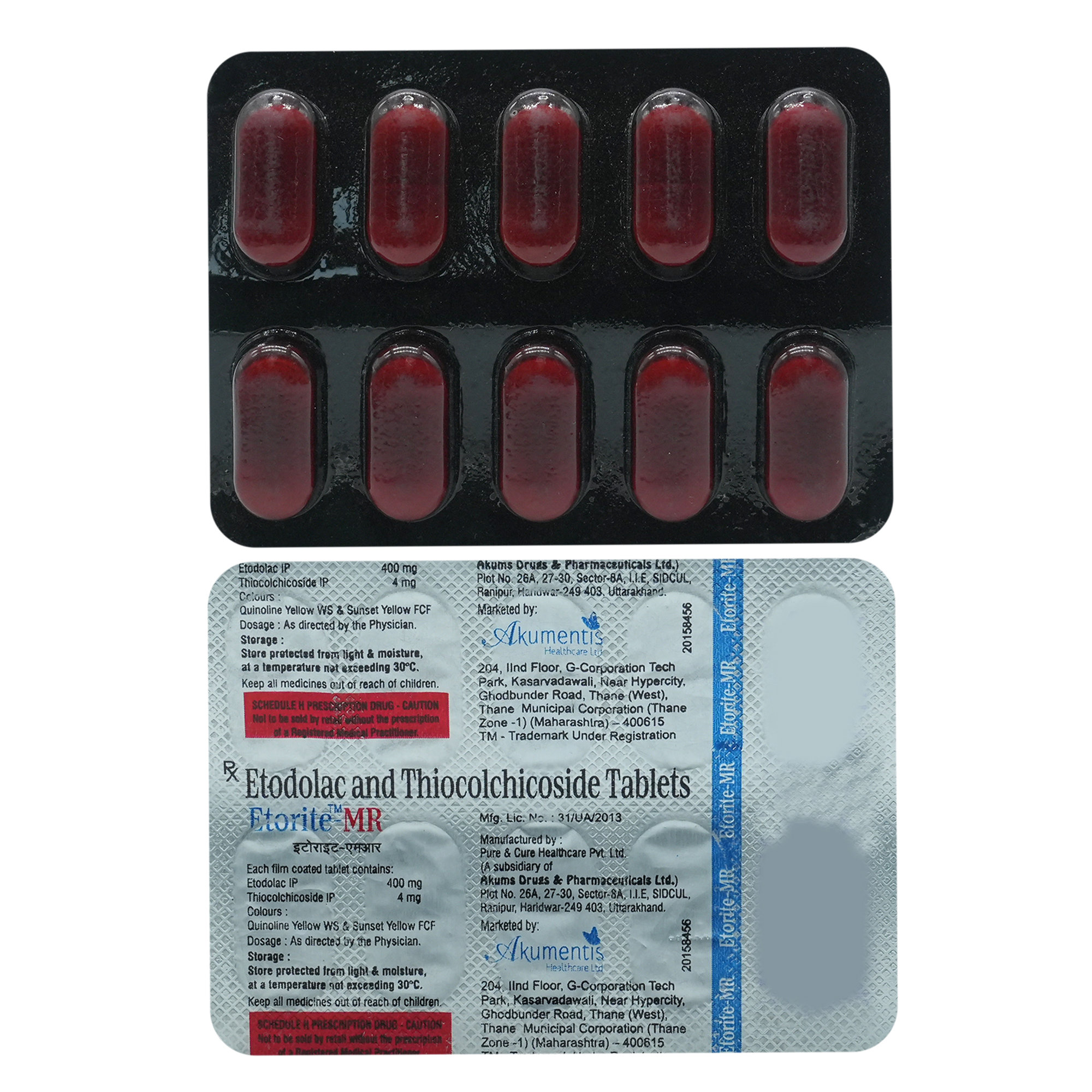
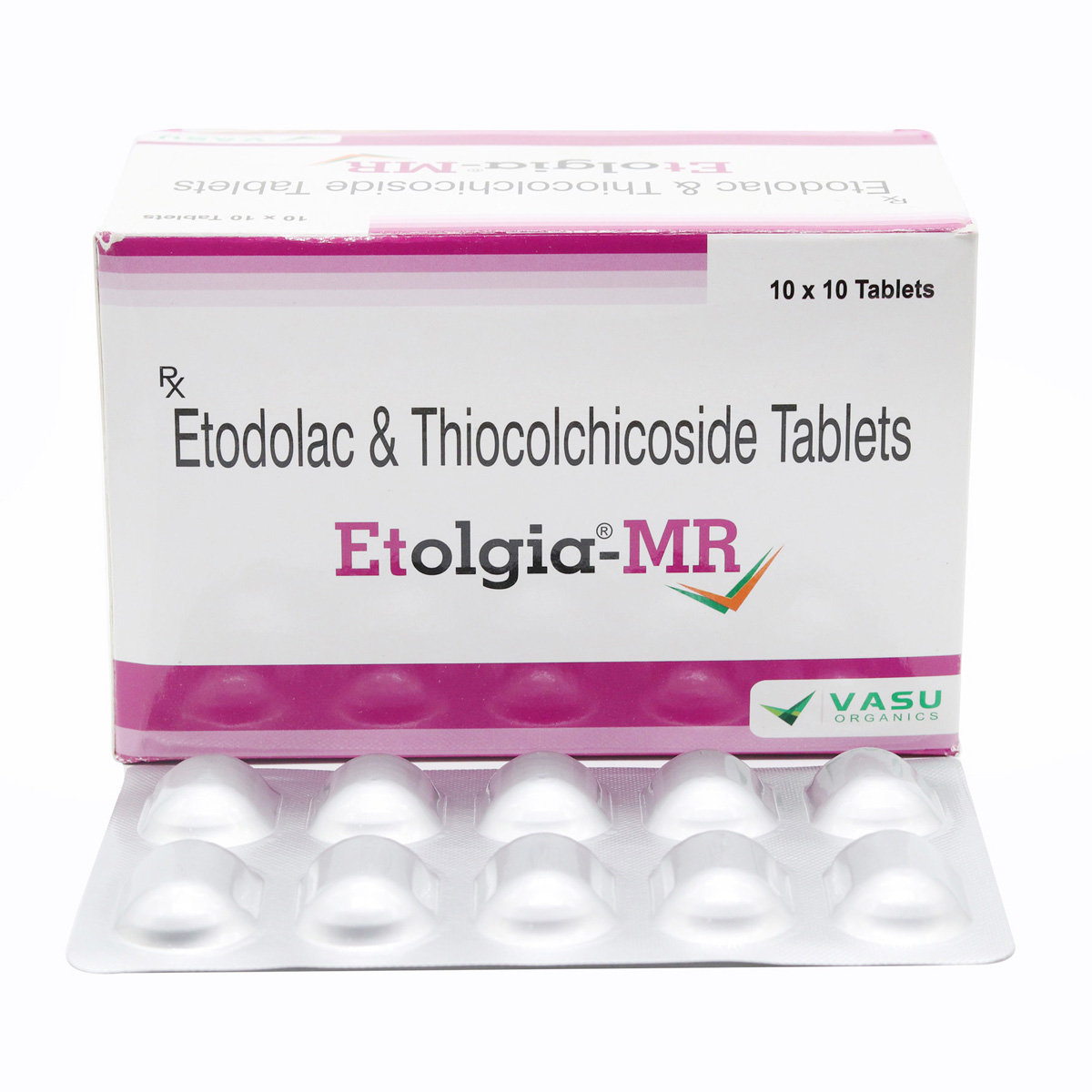
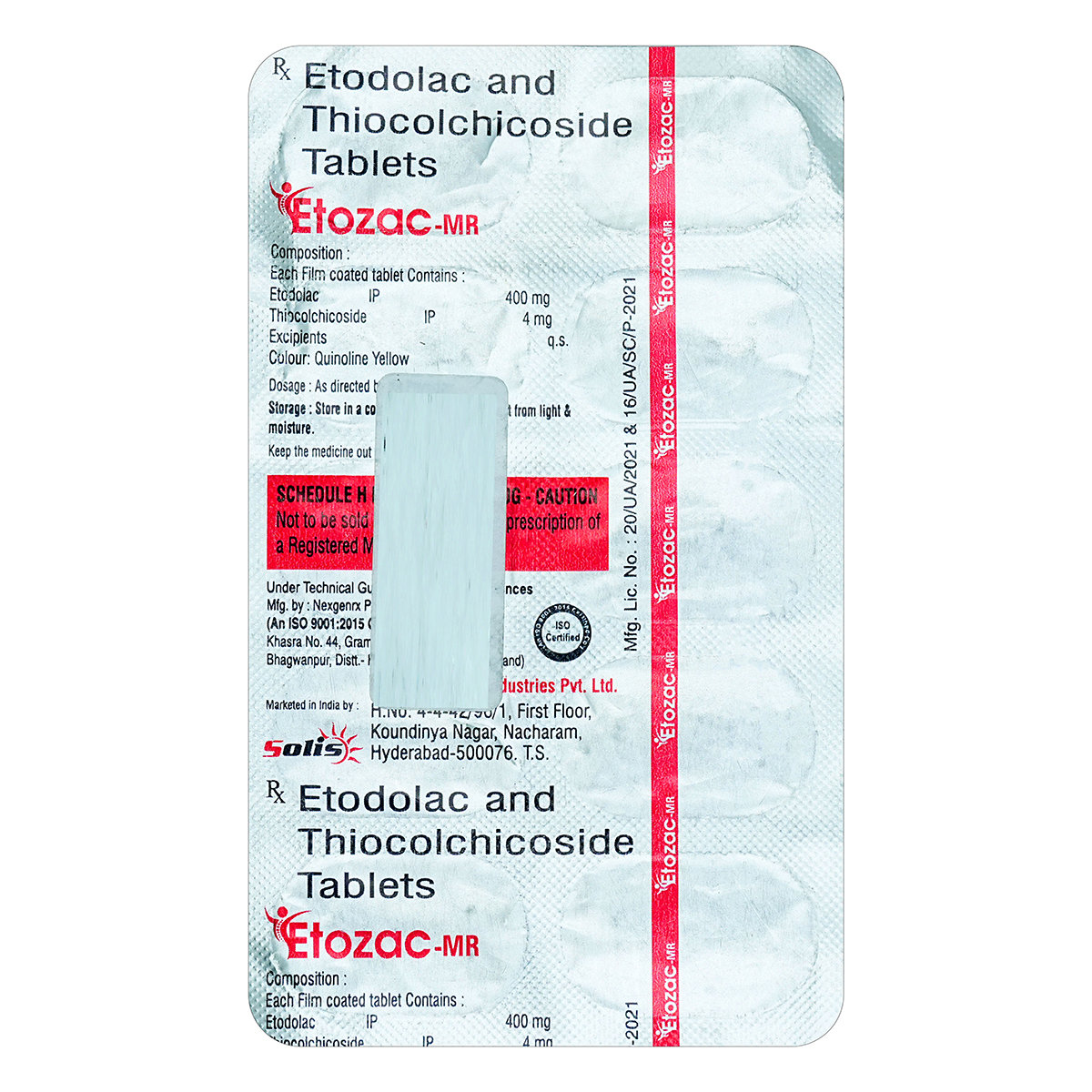
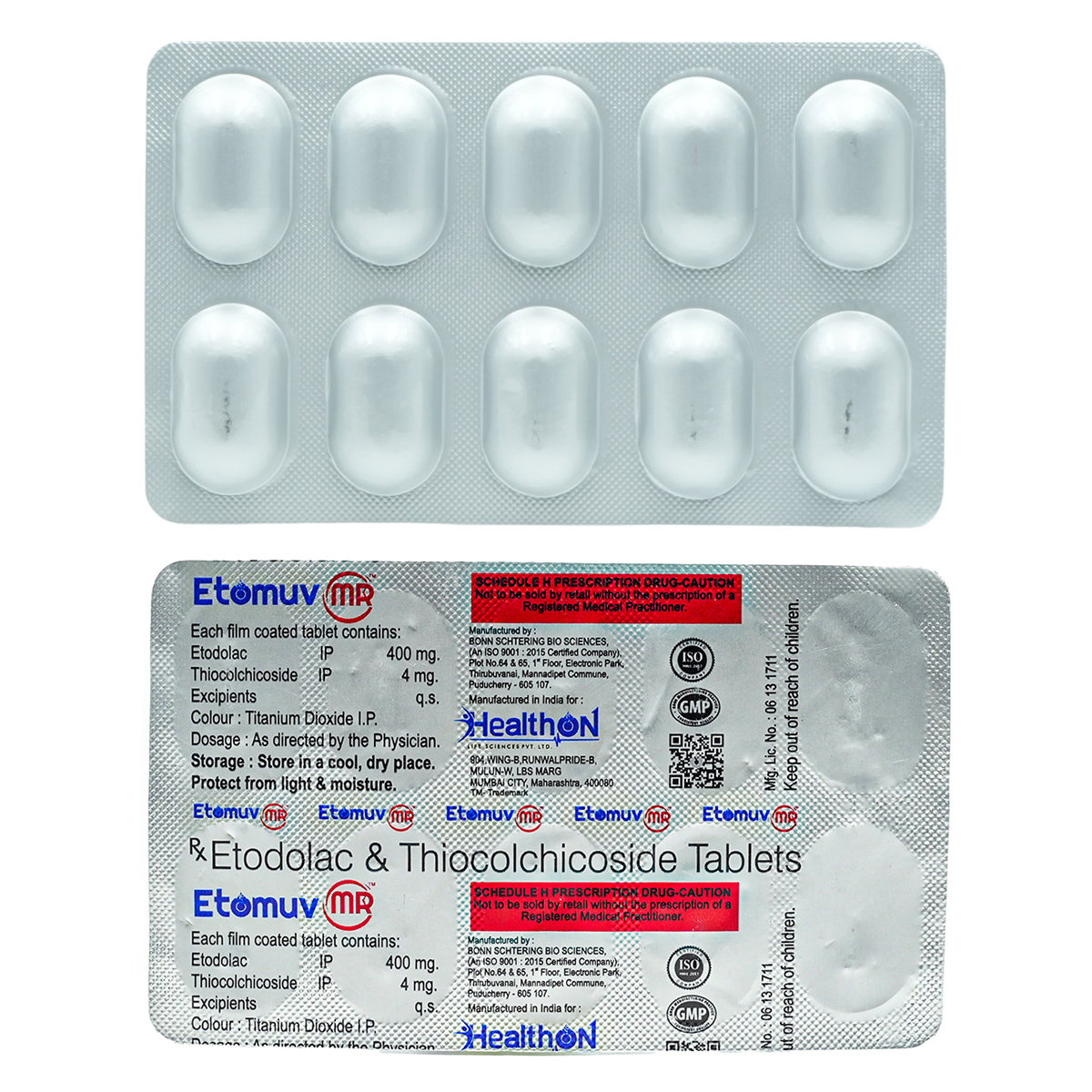
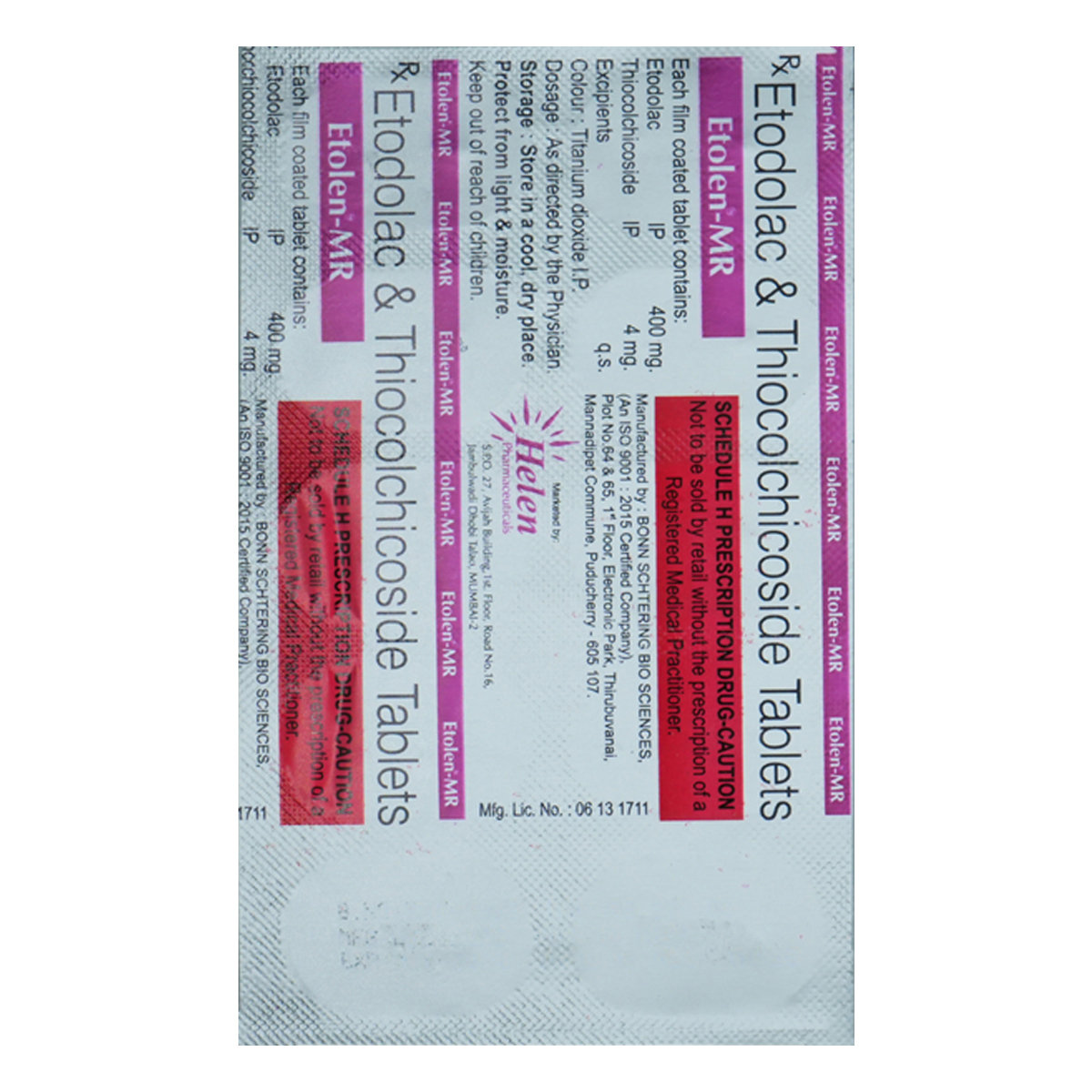
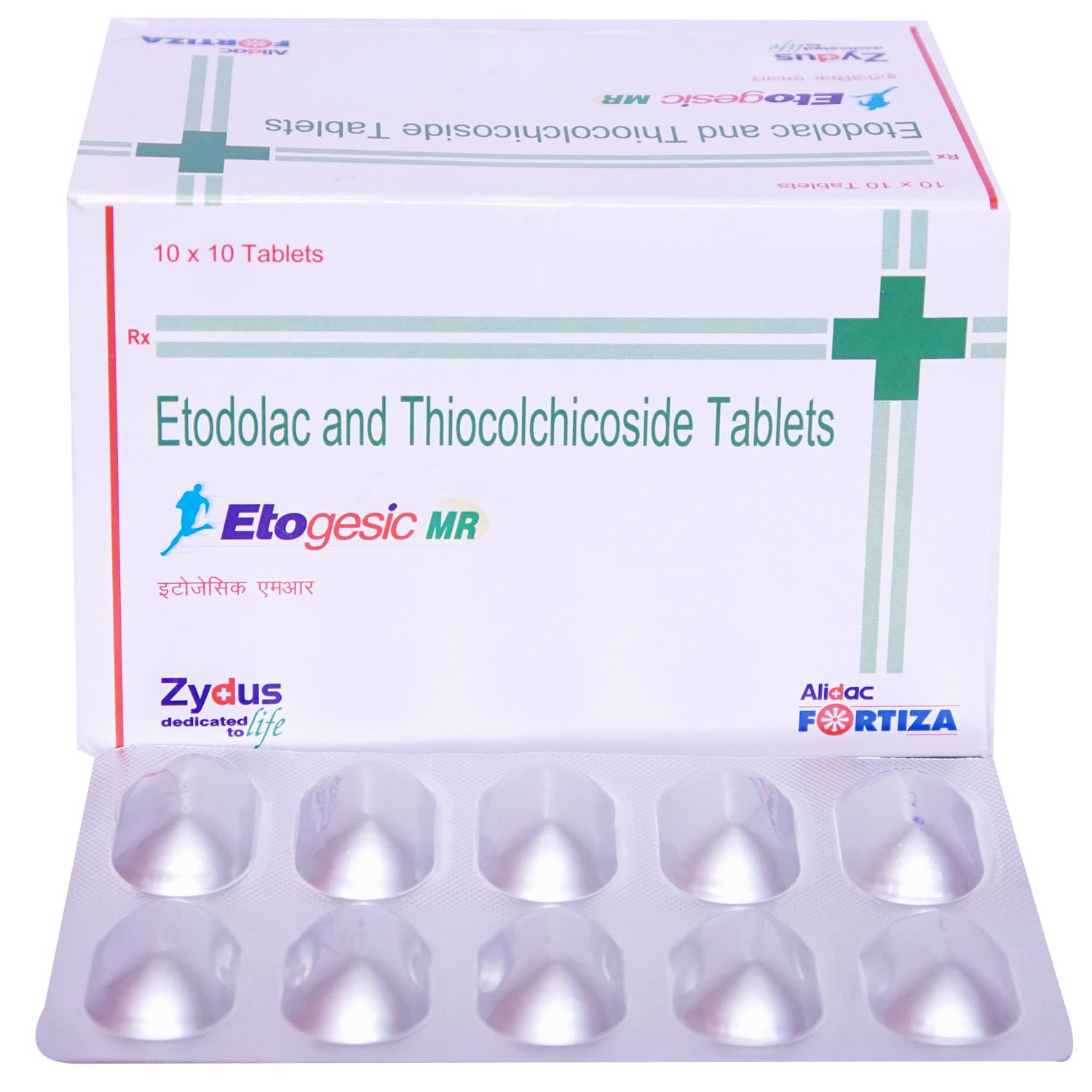
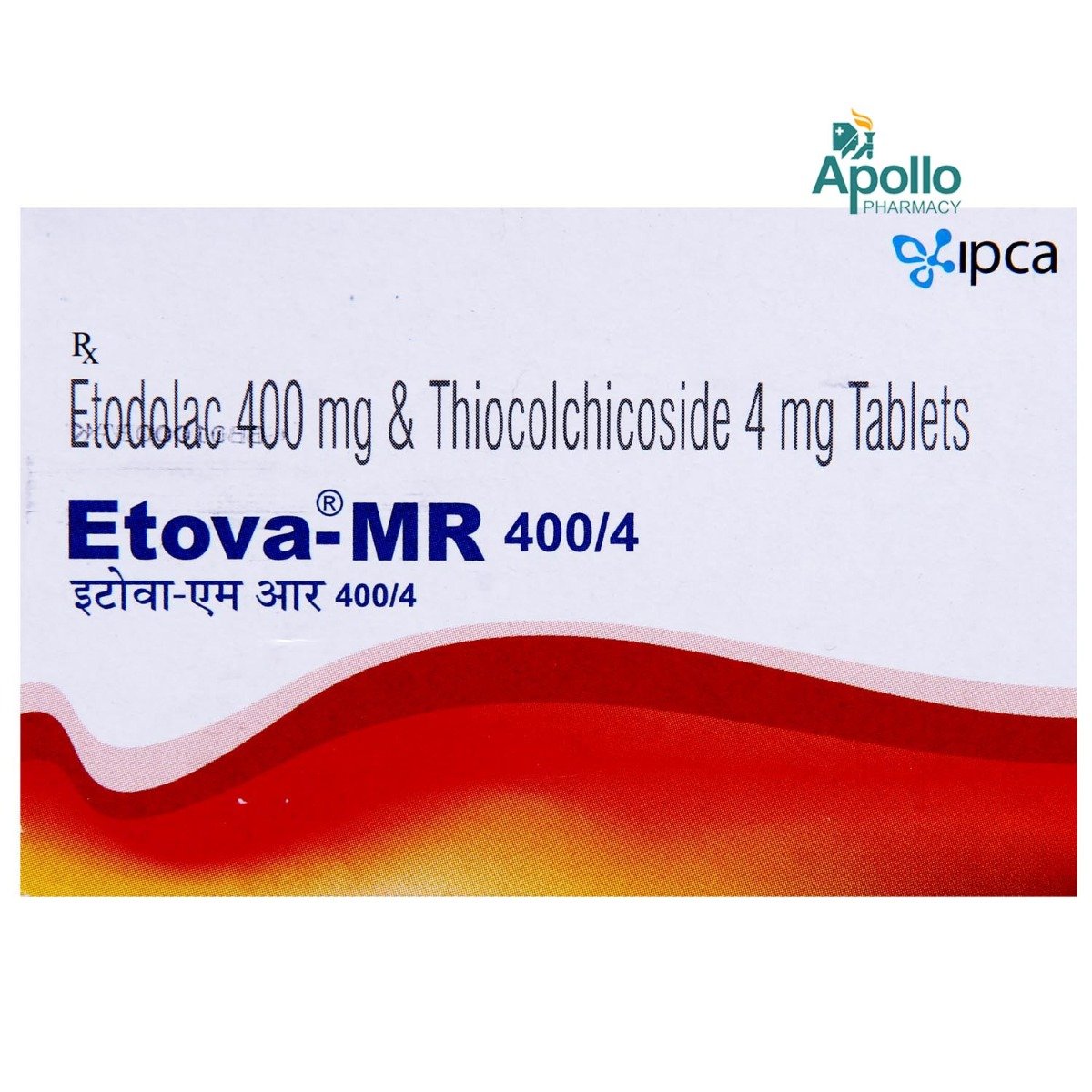
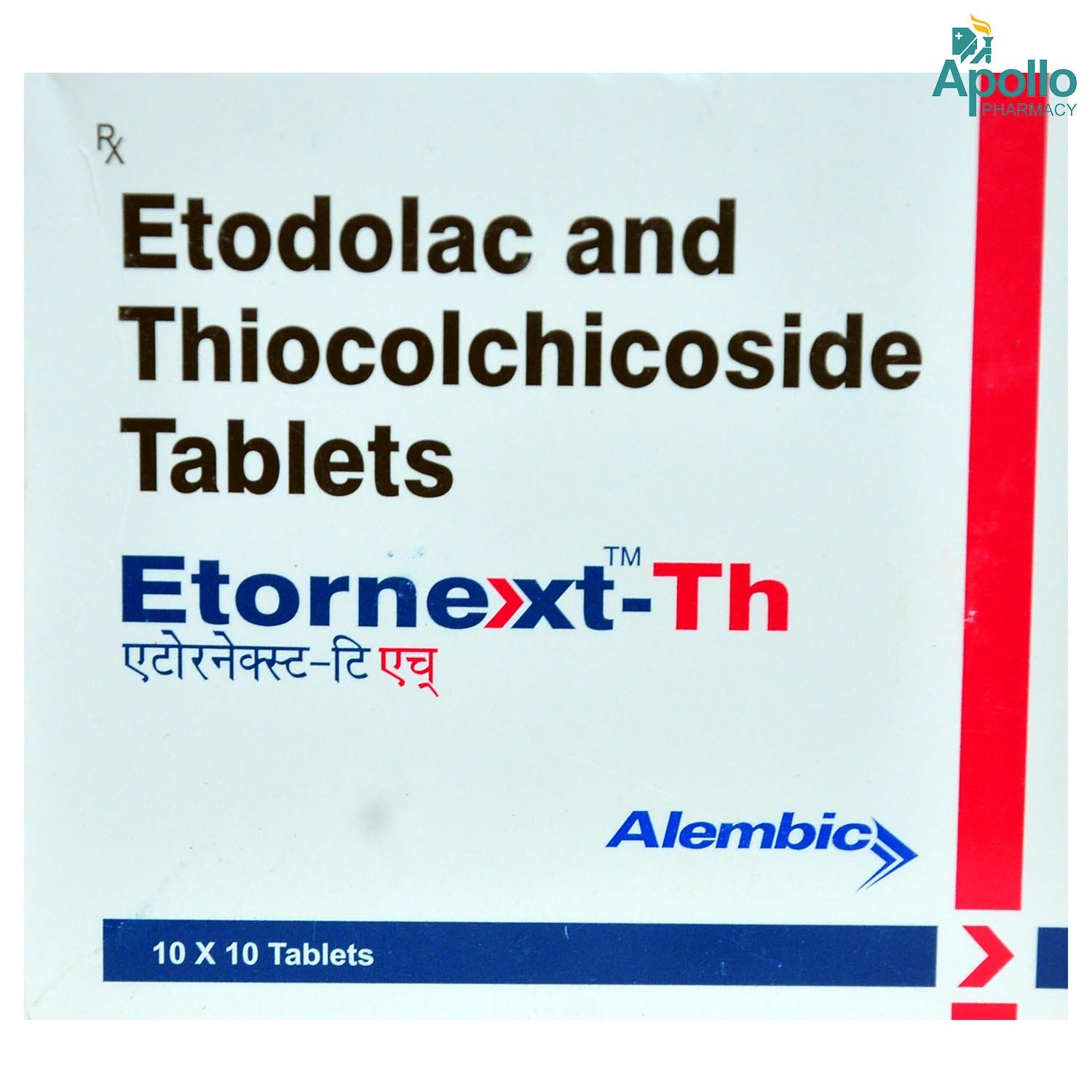

_0.jpg?tr=q-85)

